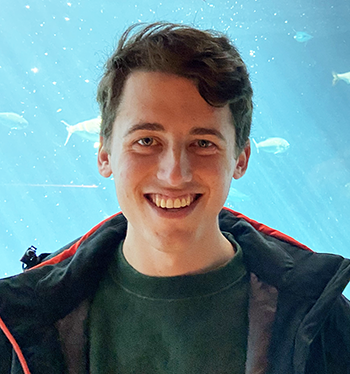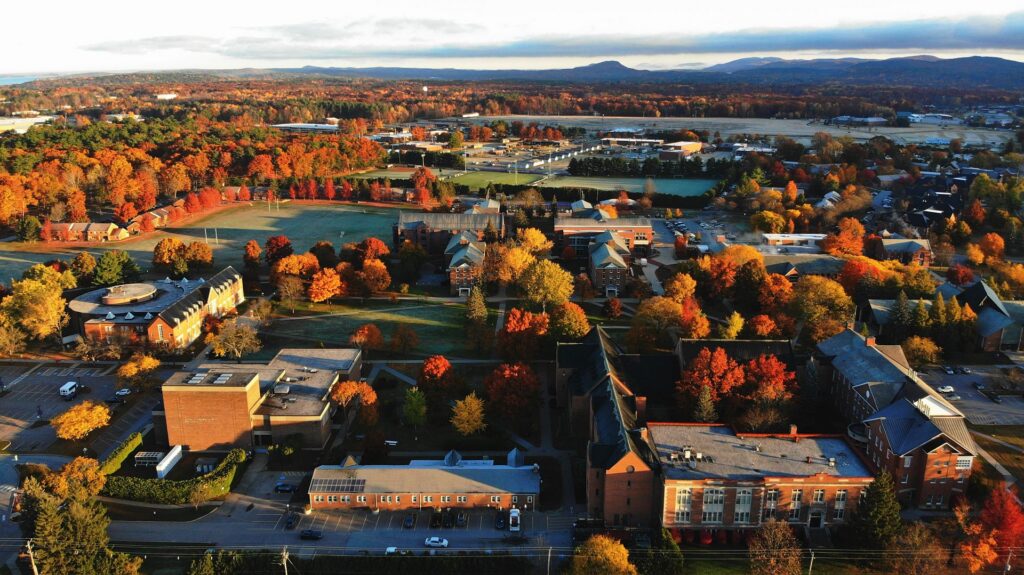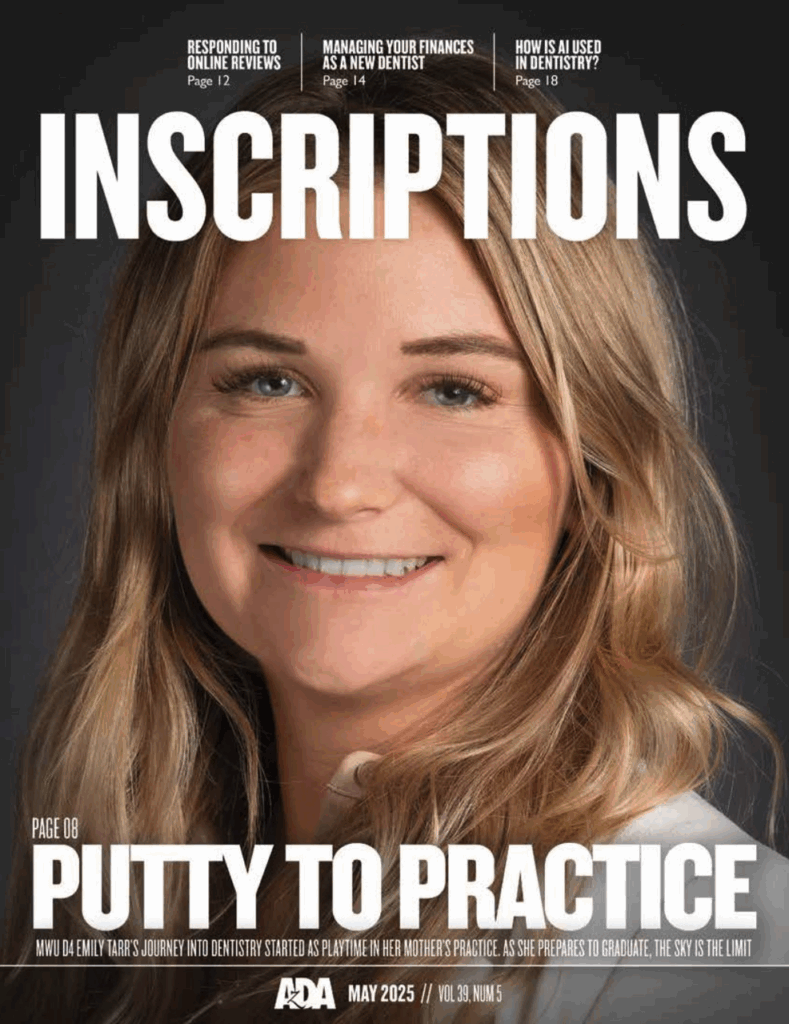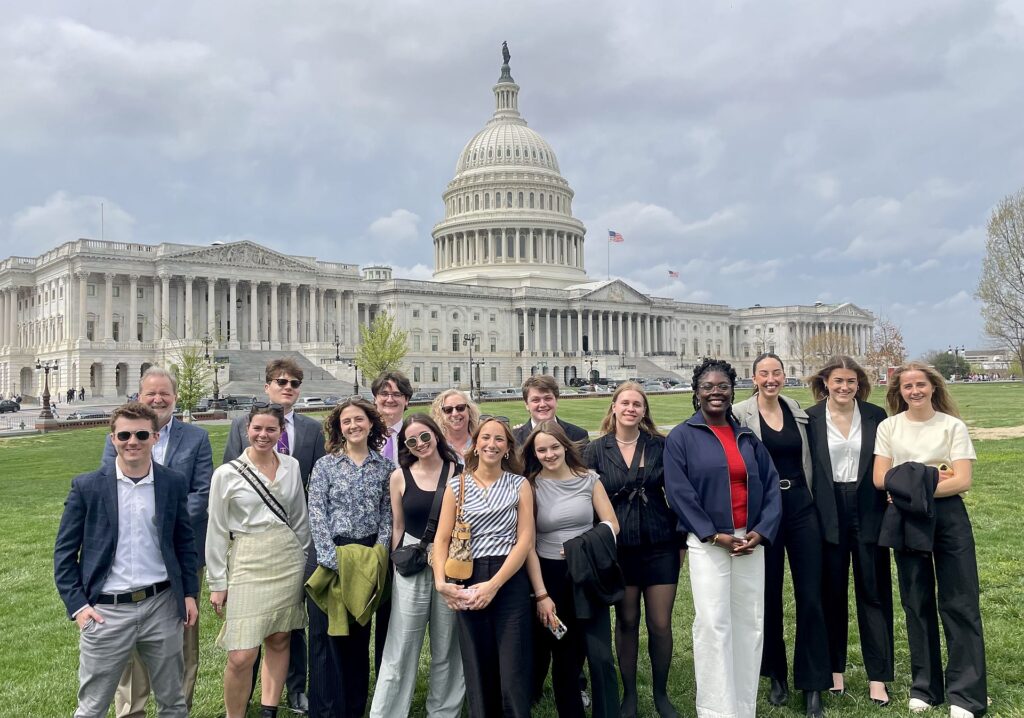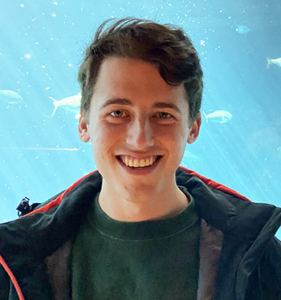
Adrien Harwood ’23
Adrien Harwood ’23, a Saint Michael’s College student majoring in international relations and criminology, is a finalist for a prestigious scholarship through the U.S. State Department that would fund his study of Russian language.
Harwood said he learned over the College’s March spring break that he is a CLS (Critical Language Scholarship) Spark Finalist. These scholarships are part of a U.S. government initiative to expand the number of Americans studying and mastering foreign languages that are critical to national security and economic prosperity.
“With the events in Ukraine, it is clear we need people in the government who understand Russian,” he said. “With my interest in Russia, I think it would be a great opportunity to be able to communicate with Russians and work to lessen tensions and build bridges where they can exist. Putin’s leadership has led to horrors in Ukraine, but I believe Russia could one day become a contributing member to the liberal democratic order. Anything I can do to contribute to this future would be worth it.”
Saint Michael’s Undergraduate Fellowship Director Trish Siplon of the political science faculty said she believes Harwood to be the first finalist for this scholarship in Saint Michael’s history, though several students have applied through the years.
Harwood said he found out about CLS from the scholarships and grants page of the Saint Michael’s Institute for Global Engagement (CGE) website. “I talked more about it with Professor Siplon before doing a bit more research on my own,” he said. “I decided the program sounded interesting and worth the application.”

Adrien Harwood also plays club rugby at Saint Michael’s (he’s far left in this photo)
He explained that his specific application was for a scholarship through “CLS Spark,” which is a program to learn beginner level Arabic, Mandarin, or Russian at home, for no cost, from an institution in a country of that language. “They offer these three as beginner options with Spark because traveling to these places for the full program requires that someone already have a year of experience,” Harwood said.
“I have always been fascinated by Eastern Europe and its history,” he said in explaining his choice of a language to study through the program. “I wrote my International Relations thesis on relations between Russia and NATO, and it felt like I had the best case for that language and certainly the most interest.”
He said the application involved providing biographical and educational information and writing a couple short response essays. “I had to make my case for “why Russian?” and what I would do to create cultural ties and build relations with the new skill. The rest was just waiting,” Harwood said. Besides academics, the senior from Milford, NH plays men’s club rugby at Saint Michael’s.
“I’ve always been a history buff,” Harwood said. “Russia has a fascinating history, especially in regard to World Wars I and II. The Cold War tensions between the U.S. and Russia were also extremely interesting to me. I’ve learned more and more about the time since the fall of the Soviet Union and I see how important learning Russian can be.”
According to the CLS Spark website, “CLS Spark is a virtual initiative for U.S. undergraduate students to learn languages essential to America’s engagement with the world. Designed to leverage best practices in online language learning developed by the CLS Program during the pandemic, CLS Spark provides American students the opportunity to study critical languages virtually when they may not have access to studying these languages on their campuses. Participants will spend the summer learning either Arabic, Chinese or Russian through online classes and activities facilitated by native speakers at a host institution abroad. A program of the U.S. Department of State’s Bureau of Educational and Cultural Affairs, the Critical Language Scholarship (CLS) Program and CLS Spark are part of a U.S. government initiative to expand the number of Americans studying and mastering foreign languages that are critical to national security and economic prosperity.”

For all press inquiries contact Elizabeth Murray, Associate Director of Communications at Saint Michael's College.
